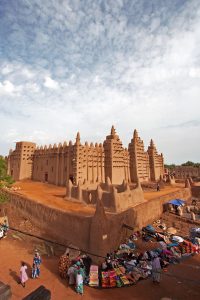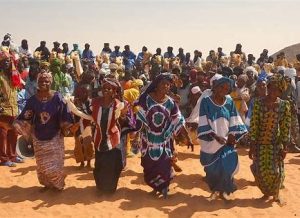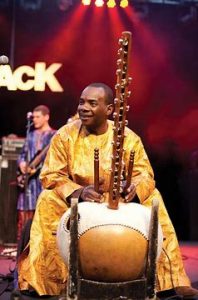
I have a friend, a healer, an expert massage therapist, and a fine musician and thinker. He plays guitar, sings, and writes songs. He is also an aroma therapist who concocts fragrant medicines from herbs, flowers, and even wood. His aromatic tonics, tinctures, ointments and sprays can sooth, immunize, and clean your teeth.
We met at the bottom of the crater and began to hug each other and dance.
He also has begun experimenting with total sensory meditation — light, sound, and smell. The idea is to inundate the senses which often distract the mind from unhampered neuroflexibility, where brain functions might be shaken from their normal, often-entrenched routes to open new cognitive pathways. In my ignorance, I like to think of this neuroflexibility meditation as a method to let the brain rebel against its established ways.
[Disclaimer: the above description is criminally lacking in deep analysis. I don’t know anything about neuroscience, but I love my friend’s total-sensory meditation machine; it blows my mind.]
 Not so long ago, my friend took a trip to the sub-Saharan nation of Mali, a strange land with outlandish indigenous architecture, strange landscapes, remarkable music and a devastating civil war in its northern regions. Despite the civil war, musicians trek from all over the world to a festival held in an oasis, 300 miles south of Timbuktu. To get there, musicians and aficionados must trek by jeep, river, and foot.
Not so long ago, my friend took a trip to the sub-Saharan nation of Mali, a strange land with outlandish indigenous architecture, strange landscapes, remarkable music and a devastating civil war in its northern regions. Despite the civil war, musicians trek from all over the world to a festival held in an oasis, 300 miles south of Timbuktu. To get there, musicians and aficionados must trek by jeep, river, and foot.
But my friend has been greatly influenced in his own musical work by the musicians of Mali, who include the well-known Ali Farka Touré. We have often listened to and talked about the music of Mali. One day, after submitting to my friend’s neuroflex meditation machine and a deep-tissue massage, I lay on the table, listening to the tinkling of chimes and Malian music and I fell into a daydream.
*
I had teamed up with a group of travelers, all of us strangers to each other. I was leading the line of oddball but good-natured trekkers across a landscape barren of any vegetation. The ground was crusted with a bright-white, salt-like substance, but the air was cool and so we marched along, not knowing where we were or where we were going.
After an unknown interval (no time sense in this daydream) we sighted the rim of a large crater, almost like a desert canyon, the side of which were covered with reddish-brown dirt of the same hue that I had seen in pictures of Mali.
 We approached the crater and looked down. Far below, we saw a village, teeming with people in what appeared to be ceremonial dress — robes and decorative accessories. They looked up as we appeared on the rim of their universe. Immediately, a great feeling of wonder and love swept over our group. Below us we could see an agitation among the village’s population that seemed to reflect our own emotions and excitement. They gestured and shouted as if to say “hello!” and “welcome!” and “come down, come down!”
We approached the crater and looked down. Far below, we saw a village, teeming with people in what appeared to be ceremonial dress — robes and decorative accessories. They looked up as we appeared on the rim of their universe. Immediately, a great feeling of wonder and love swept over our group. Below us we could see an agitation among the village’s population that seemed to reflect our own emotions and excitement. They gestured and shouted as if to say “hello!” and “welcome!” and “come down, come down!”
We descended on a narrow ledge, barely able to contain our excitement. We all felt such a powerful attraction for the people we saw below, but we had to take care, the pathway being narrow, rutted, and without guard rails.
 As we drew closer, we could hear music rising from the village, the villagers playing groovy rhythms on drums and cymbals. We all met at the bottom of the crater and began to hug each other and dance. There were stringed instruments as well, strange-shaped guitar-like instruments, and I could play them as if I’d played them all my life.
As we drew closer, we could hear music rising from the village, the villagers playing groovy rhythms on drums and cymbals. We all met at the bottom of the crater and began to hug each other and dance. There were stringed instruments as well, strange-shaped guitar-like instruments, and I could play them as if I’d played them all my life.
As I danced, I followed other dancers into the village buildings. These were no huts, but elaborate, tall structures with balconies, ladders, rooftop porches, and hallways. There was not a straight line or right angle to be seen. The inside of each house had its own fragrance, familiar from my friend’s collection of aromatic oils, tinctures, and sprays.
The feeling of love and delight seemed mutual. The villagers seemed as happy and rejuvenated to see us as we were of them. The singing and dancing and playing continued, along with the joy until I emerged from my daydream.
*
The room was dark, my friend was gone. In the kitchen I could hear pots and pans rattling. I slid off the massage table, shivered in my nakedness, pulled on my clothes and wobbled into my friend’s kitchen to say goodbye.
The feeling of love and community clung to me as I drove alone past the bungalows and pop-up shops of Echo Park, past the strolling couples, past the homeless encampments huddled beneath Sunset Boulevard’s dusky Los Angeles twilight.
# # #
Writer, editor, and educator based in Los Angeles. He's also played a lot of music. Degelman teaches writing at California State University, Los Angeles.
Degelman lives in the hills of Hollywood with his companion on the road of life, four cats, assorted dogs, and a coterie of communard brothers and sisters.



Wonderful dream very acid-like! I am jealous of your friend’s travels to Mali—that was on my list until the war came, they had to rescue the library, and travel became very daunting. I don’t know that Mali will be in this lifetime, but it seems like a great spot to daydream to! May you return someday.
Yes, it was a portentious, acid-like dream, prompted by my heightened sense of post-Covid isolation and surreality, but mostly by the visits my friend took, highlighted by conversations of a military surgeon posted there in the war zone. Mostly I felt the deep spontaneous joy of two very different groups of people greeting each other with joy, excitement, and love. I’m sure that aspect was a wishful urgency stimulated by too much Israel, Palestine, Hamas, Gaza… and I will only breathe deep over Ukraine.
Wow Chas, would love to trip with you to Mali!
That would be fun, ms Lehrman! I understand it’s quite a trek to and from Timbuktu and a terrible civil war is raging now, so all we can do is dream, dream, dream dream dream!
This took me back to the Age of Aquarius, but what a trip you took! Your daydream was so real that we could all trek along with your heightened sensations of aroma and visual. Thank you giving us this break, if only for a moment, from the horrors we are witnessing daily.
Thanks, Betsy. I think this dream came out of my hunger for community. At this point, along with the political collapse in Washington, D.C., Trump’s face, gun violence, the war against women, Gaza, Ukraine, I’m beginning to think that loneliness and anxiety are no longer individual afflictions, but national, even planet-wide afflictions. I just really wanted to dance with a bunch of “other” people who wanted to dance with us.
Charlie: I wish all the students in my African history class could have had the same therapy. It might have changed their feelings toward Africa.
I too would benefit from ripping away from my historical and political knowledge of Mali which is not so inviting.
By the way, I hope in your next daydream you will find the destination surprising and not ” strange. ” In today’s woke world, a strange people or country suggests something negative. You had the opposite reaction.
However, it is your daydream and not your historical analysis. So, forgive my academic reaction.
I know for many people I am considered strange and not surprising.
Ha! Hi, Richard! The dream began, as I described to Betsy below, as a hunger for community. I’m thinking that, in response to your notes, that the pro- and epilogues (and pictures of Mali) channel the reader into a too-narrow channel. To me, the dream itself reflected my longing to dance with a bunch of people who wanted to dance with us.
You made me look up and listen to Ali Farka Touré, whose name I had heard but whose music I could not recall. I find that style of music hypnotic, but the singing a bit atonal for my tastes.
Of course in the way of the universe, I was just this morning listening to South African gospel music, which makes my soul happy!
Yeah, there are a lot of quarter tones in the music of Mali, not a blues scale, which can clash with the quitar work of Touré and his sub-Saharan musical comrades. A bit like African high-life music, but the scales can get out there.
Gospel is the only artifact that will get me into a church!